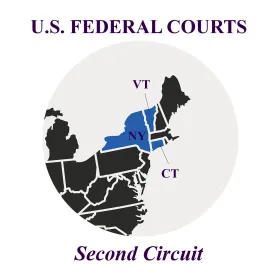Recently, the United States District Court for the District of Connecticut issued its order in United States v. Hoskins, vacating a jury’s November 2019 conviction of a foreign entity’s executive for violating the Foreign Corrupt Practices Act (“FCPA”). The court’s decision, which looks closely at the defendant’s relationship with a domestic concern1, is likely to guide future FCPA prosecutions that premise liability on an agency relationship.
Defendant Lawrence Hoskins is a British citizen, employed by Alstom UK Limited, a British subsidiary of Alstom, who worked primarily for Alstom Resource Management SA, a French subsidiary of Alstom. Hoskins allegedly participated in a corruption scheme to secure a $118 million contract in Indonesia for Alstom’s American subsidiary, Alstom Power, to provide power-related services to Indonesia. Hoskins allegedly hired two consultants, who bribed Indonesian officials to secure the contract. For his role, Hoskins never traveled to the United States while the alleged bribery scheme was ongoing.
The case went to trial, and in November 2019, the jury found that Hoskins, a foreign national, employed by a foreign entity, who never set foot in the United States, violated the FCPA for his conduct related to Alstom Power.
Hoskins later argued that he was entitled to an acquittal on all FCPA related counts because the government failed to prove that he was an agent of Alstom Power, the relevant domestic concern. The court agreed with Hoskins. Relying on the traditional agency-based liability principles, the court found that Alstom Power lacked sufficient control over Hoskins. Specifically, there was no evidence that Alstom Power controlled Hoskins’ efforts to achieve the objectives set by Alstom Power. Nor was there evidence that Alstom Power had the power to terminate Hoskins’s authority to participate in the hiring of consultants to lobby for the Indonesian project, assess his performance, or otherwise exert control over his actions. It is expected that the government will appeal the court’s decision.
FCPA prosecutions continue to be premised on novel theories, including cases against foreign nationals, working for foreign entities, and acting outside the territorial boundaries of the United States, which require experienced and nimble defense teams. Interested readers are encouraged to check back for future e-alerts on the FCPA any updates in Hoskins.
1 “Domestic concern” is a broad term that covers any individual who is a citizen, national, or resident of the United States, and most business organized under state or federal law or with principal places of business in the United States. 15 U.S.C. § 78dd–2(h)(1)(A), (B).





 />i
/>i

